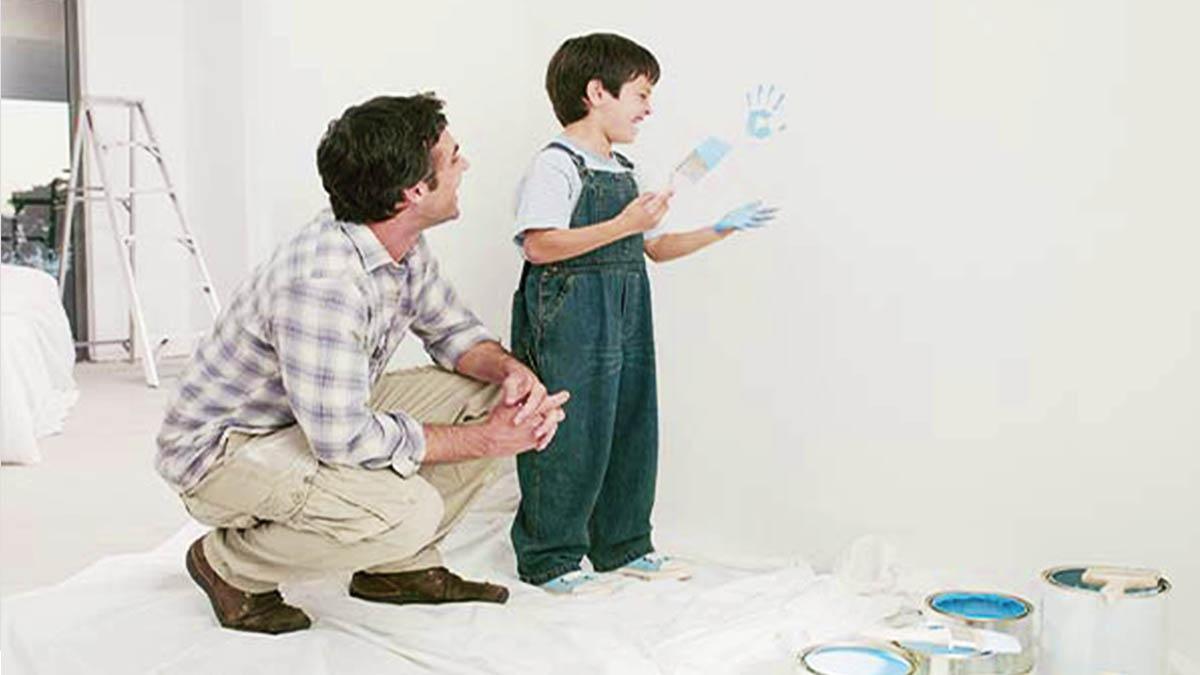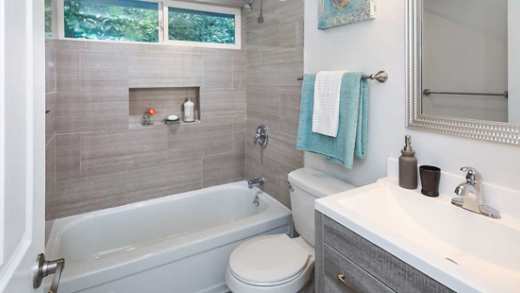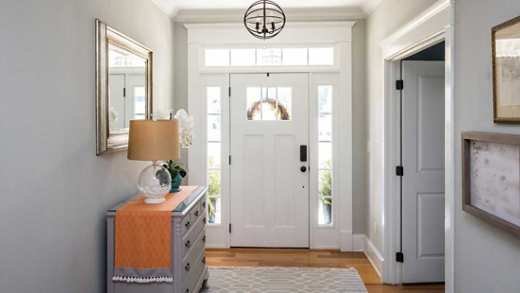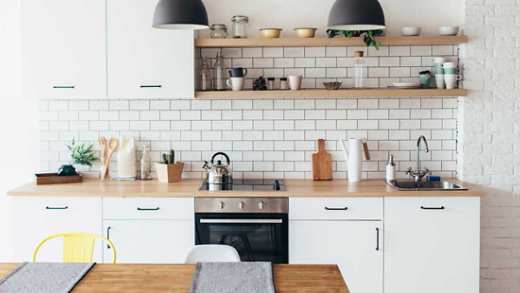There’s nothing more gratifying than building or fixing something with your own hands. Finding inspiration for home improvement, interior design, kitchen ideas and major DIY projects is the easy part. Enthusiasm can often get in the way of ease and safety. Here are some common home renovation mistakes to avoid.

1. Under-preparing
It can be exciting to get stuck into a home renovation project while imagining how much it’ll improve your home and everyday life. But rushing in without careful planning can lead to problems in the long and short term. Using a spirit level before putting up a shelf is a perfect example. Skipping the spirit level might save a few minutes of prep time, but you may regret it when things start sliding to the floor!
2. Underestimating costs
From living room updates to roof repairs, getting the costs wrong is one of the most common home renovation mistakes. It’s usually caused by inexperience, lack of attention to detail and blind optimism mixed with denial - “We can absolutely afford a new kitchen!”
You can never tell what flaws or surprises lay beneath the surface. Plan well and allow a little extra in the budget for overspending.
3. Overestimating the speed of the job
DIY projects often have unforeseen delays. From waiting on paints and cement to dry, to waiting on delivery of equipment or miscalculating how long it takes to do something for the first time. Similar to budgeting, add about 30% to the estimated project time.
4. Starting without all the equipment
Many DIY amateurs tend to overlook the tools needed in the later steps of the job. A tiny screwdriver here, a measuring tape there, or something small that you haven’t even thought of yet. Think of every step before picking up tools.
5. Not thinking of long-term use
It can be frustrating to make improvements that are perfect for the short term, only for long-term problems to emerge. An example may be that a bath or sink will need easy access to its pipes throughout its lifetime, so make their boarding easily removable. Although you may feel the urge to do a patch job, consider what’s best for your home remodel in the long term. This will actually help you to save money overall.
6. Not working to your skill level
You might have done a beautiful job laying a new floor, but that doesn’t mean that you’ll find it as easy to install new windows. Small problems can grow into larger ones if you don’t know exactly what you’re doing. Take the time to study up on new or ambitious tasks, or hire someone who’s already an expert!
7. Using the wrong paint
Such an easy mistake to make – but so disastrous when it happens! The wrong paint might be incompatible with the surface, which means it might not take properly. It might damage the surface or it could be difficult to remove or paint over. Choose wisely!
For example, chalk paint can be used to paint wooden furniture, but it may not look right on walls. Choose wisely!
8. Not measuring enough
There’s an old expression when it comes to DIY: “Measure twice, cut once.” It’s much easier to correct mistakes in the measuring and planning stage than after you’ve cut materials, used superglue or hammered frames together! Take out the pencil and tape and double-check your measurements to save time and money in the long run.
Another foundation for a safe and happy home is peace of mind. If there’s anything you’d like to know about home insurance, from minor issues to major concerns, please feel free to visit here or call us on 1800 332 211.
De-cluttering checklist
While you’re in a home improvement mood, this is a good time to get rid of clutter. Clearing space helps to clear the mind as well as the home and is an easy project to start a DIY journey with. Here’s a quick list of what you should keep and ditch when the de-cluttering begins...
Keep
- Tax and financial details: you never know when you’ll need them
- Some old photographs: store them digitally if you want to save physical space
- Timeless, important clothes: formal shoes, belts, and other neutral, small items you might need in the future (a black tie for instance, or a plain clutch bag)
Ditch or donate
- Small appliances you never use anymore. Such items can be recycled for free via WEEE Ireland.
- Old electronics. Make sure they don’t have passwords, or financial or personal information (on the hard drive or in internet history). WEEE also recycles electronic equipment
- Exercise equipment you don’t use
- Old clothes, especially items that were part of a fashion fad
- Books, magazines and newspapers
Remember when undertaking any DIY projects you should exercise caution, especially when dealing with electricity and plumbing. When in doubt, speak to a professional and don’t take any risks.
Learn more about Aviva home insurance.
















